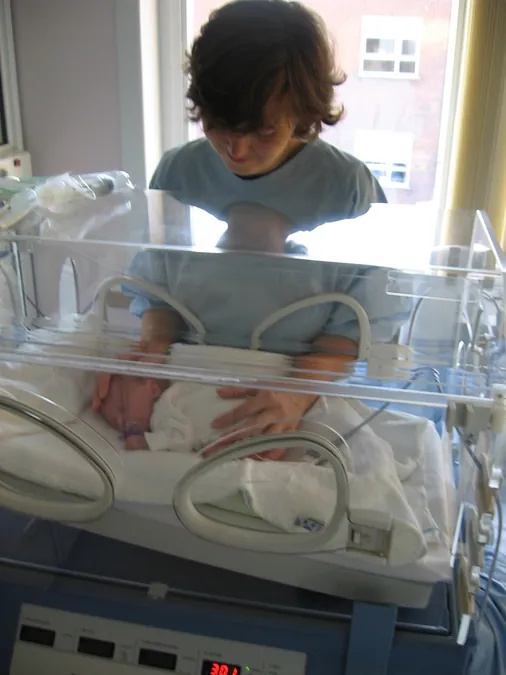
Groundbreaking Research Offers Hope for Extremely Premature Infants Using Umbilical Cord Blood Cells
2024-12-16
Author: Li
Groundbreaking Research Offers Hope for Extremely Premature Infants Using Umbilical Cord Blood Cells
Australian researchers have made a remarkable breakthrough that could transform the care of extremely premature infants. A team from Monash Children's Hospital has successfully collected and reinfused umbilical cord blood cells in neonates born significantly early, presenting a potential solution for preventing debilitating brain injuries.
This groundbreaking study, a collaborative effort involving Monash Health's Monash Children's Hospital, The School of Clinical Sciences at Monash University, and Hudson Institute of Medical Research, has proven the feasibility and safety of utilizing a baby’s own cord blood-derived cells as a treatment option. This innovative approach could profoundly impact the more than 3,000 very preterm infants born in Australia each year before reaching just 32 weeks of gestation.
The Cord-Safe Study specifically targeted infants born before 28 weeks of pregnancy—tiny babies often no bigger than a palm. Collecting cord blood from these extremely premature infants is challenging due to smaller placentas and limited blood volumes, coupled with complex delivery circumstances. Nevertheless, researchers successfully collected and processed cord blood cells from about 70% of the infants enrolled in the study.
The results are encouraging: 23 extremely preterm infants received infusions of their own cord blood-derived cells, and none experienced serious adverse events, indicating that this procedure is both safe and well-tolerated.
This pioneering Phase I clinical trial is the first of its kind to demonstrate that umbilical cord-blood-derived cell (UCBC) collection and reinfusion is feasible in this vulnerable group of babies. Premature infants are at a heightened risk of brain injuries which can lead to long-term health challenges, including cerebral palsy. By leveraging their own cord blood cells, researchers aspire to create a protective barrier for these sensitive developing brains.
“This research is a thrilling advancement in neonatal medicine,” stated Dr. Lindsay Zhou, the lead author of the study. “For the first time, we are examining the therapeutic potential of a baby's own cord blood cells in extremely preterm infants, presenting a viable treatment option where few alternatives exist.”
The study capitalizes on extensive preclinical evidence that suggests umbilical cord blood-derived cells have neuroprotective qualities. These cells exhibit various beneficial effects, which encompass anti-inflammatory, immunomodulatory, and protective mechanisms crucial for brain development.
Future Prospects
The success of this feasibility study may be the first step towards larger-scale international trials. With cell therapies increasingly considered for neuroprotection and neuroregeneration in young children, this research places Australia at the helm of innovative neonatal care advancements.
Leading the project, Associate Professor Atul Malhotra emphasized that this breakthrough could revolutionize how medical professionals and parents navigate the complexities of extremely premature births, ultimately transforming neonatal care for future generations.
“The Cord-Safe Study is pivotal in our exploration of using a baby's own cord blood to enhance health outcomes,” said Associate Professor Malhotra. “This lays the groundwork for an international randomized controlled trial and showcases Australia's commitment to pioneering treatments in neonatal care.”
With the eyes of the global scientific community now on Australia, the findings from this study could herald a new era of hope for extremely preterm infants and their families.




 Brasil (PT)
Brasil (PT)
 Canada (EN)
Canada (EN)
 Chile (ES)
Chile (ES)
 España (ES)
España (ES)
 France (FR)
France (FR)
 Hong Kong (EN)
Hong Kong (EN)
 Italia (IT)
Italia (IT)
 日本 (JA)
日本 (JA)
 Magyarország (HU)
Magyarország (HU)
 Norge (NO)
Norge (NO)
 Polska (PL)
Polska (PL)
 Schweiz (DE)
Schweiz (DE)
 Singapore (EN)
Singapore (EN)
 Sverige (SV)
Sverige (SV)
 Suomi (FI)
Suomi (FI)
 Türkiye (TR)
Türkiye (TR)